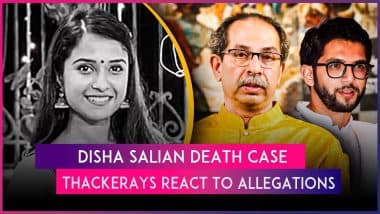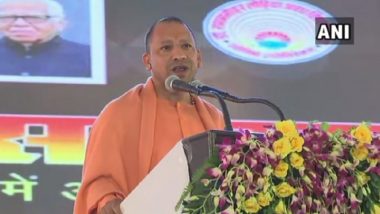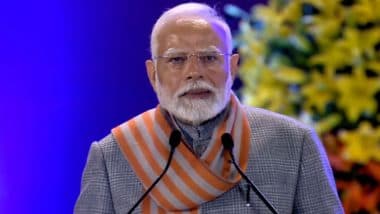Faizabad, December 16: Taking a veiled dig at Congress chief Rahul Gandhi, Uttar Pradesh Chief Minister Yogi Adityanath has said people have started showing their gotra and sacred thread to become prominent in the country's politics. Addressing a gathering in the district Saturday he said, the people who had described themselves as accidentally Hindus were now realising that they were Hindus in the real sense and it was a victory of Sanatan faith.
He said Google failed before the epic Ramayana, which was written by sage Valmiki, and he asserted that the knowledge of the spiritual books was correct instead of what the search engine said. "The word Kumbh has started becoming prevalent. It has become a fashion and trademark for the branding of one's programme... These days people are showing their Gotra and janeyu (sacred thread) to become prominent in the country's politics," Adityanath said without naming Gandhi. After Allahabad, Yogi Adityanath Administration in UP to Rename Sultanpur as Kushbhavanpur.
UP CM Yogi Adityanath in Ayodhya:Desk ki rajniti mein haavi hone ke liye log ab apna gotra, apna janeu bhi dikhane lag gaye hain. Wo jo kehte the ki ham accidental Hindu hain, aaj unko ehsas ho raha hai ki wo sacche mayene mein Hindu hain. Ye Bharat ki sanatan aastha ki vijay hai pic.twitter.com/YD9BruGRFy
— ANI UP (@ANINewsUP) December 15, 2018
"The people who described themselves as accidentally Hindu are now realising that they are also Hindus. (They are realising) it is not accidental and we are Hindus in the real sense. Now they are remembering their janeyu and Gotra. I think this is the victory of India's Sanatan faith. This is the victory of our beliefs," he said. He claimed the people who were criticising the Kumbh Mela were trying to destroy the Indian culture and were conspiring to disgrace the country with the help of foreign funds.
The BJP leader claimed that they were trying to defame Hindu religion over the Sabarimala issue when everybody knew the tradition of the temple. He claimed that those who had never been to temple were issuing statements over the issue and a similar environment was being created over the grand Kumbh Mela by terming it an anti-Dalit convention. He said people from all castes took part in Kumbh which was a symbol of spiritual grandeur. He said most verses in the Vedas were composed by Dalit saints and the sage who had interviewed Lord Ram was Valmiki but people from the community were discriminated against.













 Quickly
Quickly





















